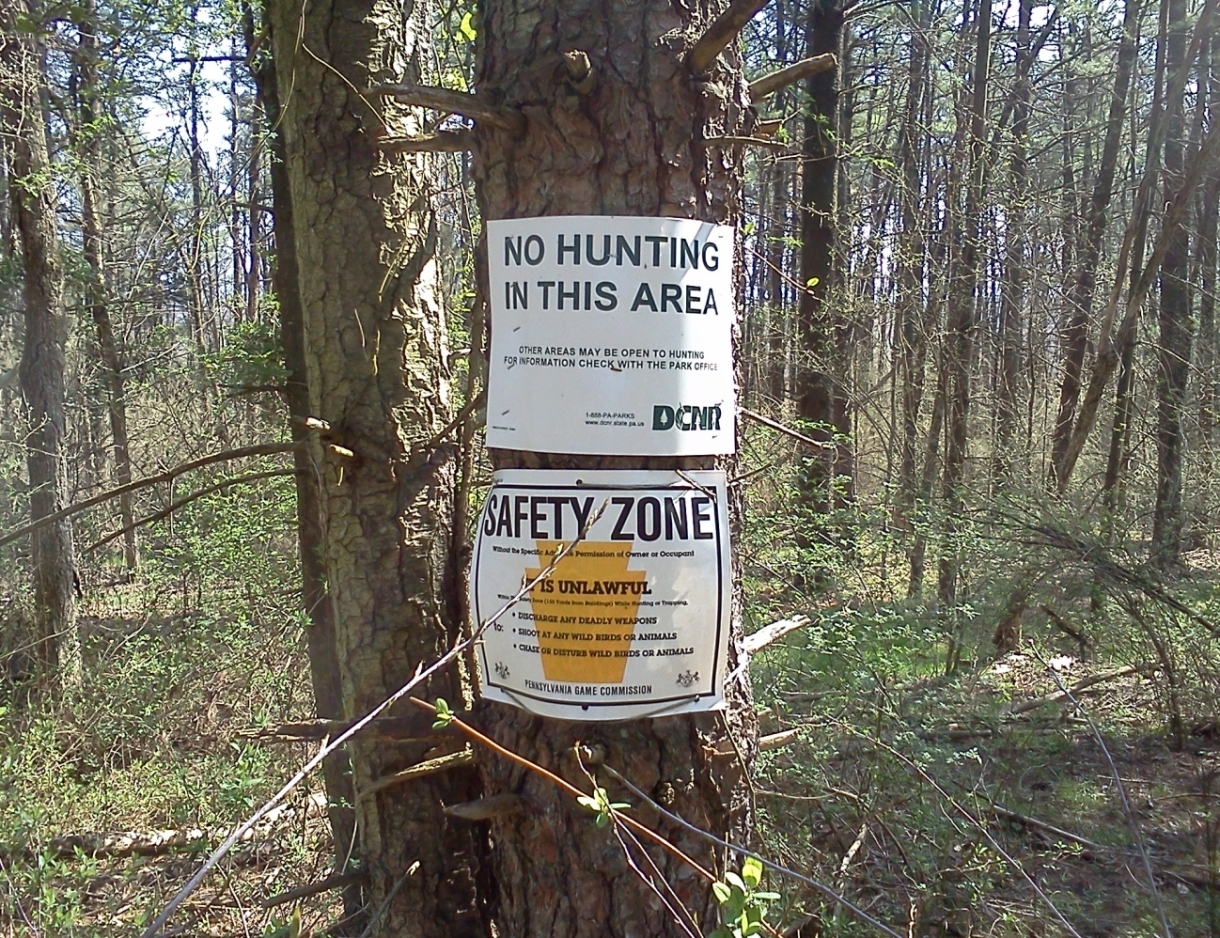Posts
Legislation Crafted to Keep Young People Out of Gangs
/in News /by PAMatters
A trio of southeastern Pennsylvania lawmakers is introducing a bill designed to prevent gang violence before it starts The bill would make it a criminal offense to recruit gang members in Pennsylvania. “It will give law enforcement a tool to stop people from trying to recruit young folks into gang activity,” says Senate Majority Leader Dominic Pileggi (R-Chester/Delaware).
The new offense could be a misdemeanor or felony, depending on how the recruitment takes place. Simply soliciting someone to join a gang would be a first-degree misdemeanor. The addition of threats or intimidation would bump the offense up to a third-degree felony, and there would be a sentencing enhancement if bodily harm were involved.
Senator Pileggi tells us the bill was born out of discussions with Chester County DA Thomas Hogan, who is currently prosecuting a dozen teens and young adults for offenses related to the stabbing deaths of two rival gang members.
Listen to Hogan’s comments at this week’s news conference in Chester County:HOGAN
Sen. Pileggi says Pennsylvania’s behind the times on this issue. “We found at least 20-states, including our neighbors in Delaware and New Jersey that have very similar laws in place now.” He says the bill will be up for discussion this fall, and believes it could see action before the end of the legislative session.
Senators John Rafferty (R-Montgomery/Chester) and Ted Erickson (R-Delaware/Chester) are also a part of the legislative push.
Negotiators Agree to Budget Framework, Tax Credit
/in News /by PAMattersGovernor Tom Corbett has repeatedly said that June 30th means something to him. With Wednesday night’s announcement that he and top Republican lawmakers have agreed to a $27.656-billion dollar budget framework, it appears that Pennsylvania is on pace to meet a second consecutive budget deadline.
Neither Corbett nor the legislative leaders were willing to discuss the details, as rank-and-file lawmakers are still being briefed on the specifics and a few details are still being finalized. However, $27.656-billion is the same spend number the state Senate used when it passed a budget bill in May.
One of the Senate’s top priorities at the time was the restoration of proposed 20% cuts to the State System of Higher Education and proposed 30% cuts to the three big state-related universities (Penn State, Pitt and Temple). The planned restorations came with a promise from those universities to keep next year’s tuition increases below the Consumer Price Index. Whether these restorations made it into the final deal has yet to be confirmed.
We do know that 40.3% of the budget is comprised of education spending and 38.9% is spent on social services. So, any movement in the spending plan – either up or down – will likely come from those two categories.
In addition to the budget framework, negotiators have confirmed agreement on an ethane tax credit that’s designed to lure a massive new petrochemical plant to western Pennsylvania. “We are investing I believe… in a new industrial revolution in Pennsylvania,” Governor Corbett said earlier on Wednesday. “We are investing in the opportunity for thousands of Pennsylvanians to have a good job.”
The American Chemistry Council estimates 10,000 construction jobs, 400 direct plant jobs in 17,000 spinoff jobs in chemical and manufacturing industries if the proposed Shell Oil petrochemical plant comes to fruition in Pennsylvania.
While Corbett was joined at the capitol by a large & diverse group of tax credit supporters, critics are wary of giving taxpayer money away to big industry. One of those critics is state Rep. Jesse White (D-Washington). He’s already proposed an alternative that would fund the incentives through a surcharge on Pennsylvania’s natural gas wells. “We should not be socializing costs while privatizing profits,” White said in a statement this week.
PA’s Pension Woes Not Unique
/in News /by PAMattersWisconsin is the only state with a fully-funded public pension system, according to a new report from the Pew Center on the States. “Overall the 50-states have a $1.38-trillion dollar funding gap between what they should have set aside to pay for their retirement promises – both pensions and retiree health care – and what they actually have on hand,” explains Pew Center senior researcher David Draine.
Draine tells Radio PA the economic downturn has definitely hurt state pension plans, but the problem has also been decades in the making. “Lawmakers in states like Pennsylvania and others failed to make the recommended contributions both in good times and bad.”
The current state budget includes $1.1-billion dollars in pension obligations. That number is expected to nearly quadruple to $4-billion dollars by 2016, and Governor Tom Corbett is making pension reform a top post-budget priority.
“We’ve got to get pension reform done… the vast majority of the money that the school districts say they need is to go to the teachers’ pensions. That’s where it’s going,” Corbett said at an unrelated news conference last week.
Republican leaders in the Senate appear ready to move on legislation that would move all new hires to a 401K-style defined contribution pension plan. “It is overdue for Pennsylvania state government to move in that direction,” says spokesman Erik Arneson. Numerous pension-related bills have been introduced in the state House as well.
A 2010 law increased employee contributions, raised the retirement age to 65 and extended the vesting requirement to ten years for all new hires. Draine says that will slow the growth of Pennsylvania’s unfunded pension liability, but will not solve the problem.
Governor Tom Corbett on recent appointments and the current legislative session
/in Ask the Governor, Media, News, Video /by PAMattersS.E.S.A.M.E. Act Seeks to End Educator Sexual Misconduct
/in News /by PAMattersThe acronym stands for Stop Educator Sexual Abuse, Misconduct and Exploitation. “It’s an absolute real, significant and predominant problem in all of our states,” says S.E.S.A.M.E. board member John Seryak. A retired teacher from Ohio, Seryak traveled to Harrisburg this week to urge action on SB 1381.
The group is fighting for new laws across the country, but Pennsylvania is on the frontlines, in part because of the high-profile Jerry Sandusky scandal.
The bill would put an end to a practice dubbed ‘passing the trash,’ in which a teacher accused of sexual abuse resigns or retires and is allowed to quietly move on to another district. Specifically, it would tighten abuse reporting laws, require schools to obtain all prospective employees’ work records and prohibit confidentiality agreements between a school and an alleged abuser.
“This legislation was crafted to allow school districts to know who they are hiring,” says state Senator Anthony Williams (D-Philadelphia), the prime sponsor of Pennsylvania’s S.E.S.A.M.E. Act.
SB 1381 already received a unanimous vote in the Senate Education Committee. Now, supporters want to see action by the full Senate before the new school year.
Seryak says that in more than one-third of sexual misconduct cases teachers do not lose their certification. “I think it raises the bar as far as responsibility goes… for all the people that work for the school district.”
Governor Corbett on a measure for a smaller legislature
/in Ask the Governor, Media, News, Video /by PAMattersFarmers Pleased with Landowner Liability Bill
/in News /by PAMattersLandowners who allow hunting on their properties can be held responsible for Game Code violations, under current law, but SB 1403 would limit that liability.
The legislation breezed through the state Senate unanimously last week, and appears to have farmers’ support. “You just don’t have that much cash around, you know, to try and defend yourself for something that you shouldn’t have been held liable for to begin with,” explains Adams County Farm Bureau president Dan Wilkinson.
While Wilkinson hasn’t dealt with such liability issues himself, he supports the measure as being in farmers’ best interest.
“We should be encouraging farmers and landowners to open their land for hunting and other recreational purposes instead of threatening them with legal consequences for the actions of others,” said State Senator Richard Alloway (R-Franklin/Adams) in a written statement. Alloway is both the bill’s prime sponsor and Chairman of the Senate Game and Fisheries Committee.
“You’d have people standing on top of each other,” added Wilkinson about the prospect of limiting hunting to state-owned game lands. About 80% of the huntable land in the state is owned by farmers and other private landowners.
The bill does specify that property owners could still be held responsible if they receive a payment or fee from the hunter. It now awaits House committee action.
Senate Votes to Fund Mortgage Assistance Program
/in News /by PAMattersState budget pressures have taken their toll on the Homeowners’ Emergency Mortgage Assistance Program (HEMAP). The program, which provides small loans to financially distressed homeowners on the brink of foreclosure, has not accepted any new applications since last September.
State lawmakers now believe they’ve found a solution, and the Senate has voted unanimously to tap the recent national mortgage abuse settlement for HEMAP funding. Pennsylvania will be receiving about $65-million dollars specifically for consumer protection purposes. Senator John Gordner’s bill (SB 1433) would direct 90% of that money into the HEMAP program. The remaining 10% would be split evenly between the attorney general’s office and legal services for consumers.
“Since 1983, we have saved 46,000 homes through our HEMAP program,” Gordner explained from the Senate floor prior to Wednesday’s vote.
United Way of Pennsylvania President Tony Ross tells Radio PA that HEMAP is one of the wisest investments the state can make, “Because we know that homelessness is a major cost driver in terms of social services.” Ross points to a recent study that found hundreds of millions of dollars in savings.
If it becomes law, the bill is expected fund HEMAP for the next five years. It’s now headed across the capitol where it will await consideration by the state House.
Taking Bets on the Future of the Foxwoods Casino License…
/in News /by PAMattersEven after this week’s House vote the fate of Pennsylvania’s only revoked casino license is still up in the air. HB 65 would remove the restrictions that tie the license to Philadelphia and open it up to a statewide auction. “By doing this the state stands to increase its revenue,” says State Rep. Curt Schroder (R-Chester), the bill’s prime sponsor and chairman of the Gaming Oversight Committee. His bill passed with a bipartisan vote of 140 – 48.
But it’s no sure bet in the Senate. A spokesman says the Republican leader is among those wondering if the gaming market is already saturated and whether the license should be eliminated altogether.
The state Treasurer released a study last year, which indicated market maturation and even saturation on the opposite ends of the state. He suggested that central PA may be the place to maximize revenues.
Governor Tom Corbett notes that plans have always called for the license to be awarded. “I always think that we need to look at property tax relief,” Corbett says. He acknowledges there have been discussions about the license within the administration, but did not offer many details while speaking with the media this week.
Pennsylvania is home to 11-operating casinos, where slot machines raked in more than $214-million in gross revenue last month. That translates into $116-million worth of tax revenue, according to the Gaming Control Board. The lion’s share of slot machine tax revenue is used for property tax relief. Table games tax revenue currently ends up in the General Fund.
The Gaming Board rolled the dice on the Foxwoods casino project in 2006. After four years of delays and financing woes, the license was revoked in late 2010. It’s been in limbo ever since.
Welcome to PAMatters.com, a new source for news and commentary from Pennsylvania’s capital. In addition to video, audio and pictures from the stories and events that affect YOU, you’ll also get some behind-the-scenes analysis via blogs from our award-winning staff of journalists.









